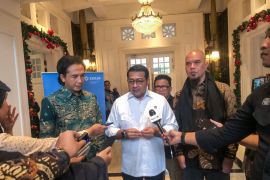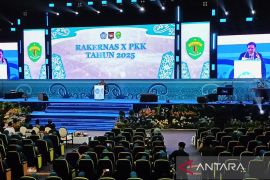The 12-track collection—which has also drawn support from Billy Ocean, Radiohead’s Ed O’Brien, Bastille’s Dan Smith, as well as Jamiroquai—features sound recordings of empty studios and performance spaces.
And it spells out a powerful message: “The British government must not legalize music theft to benefit AI companies.”
The “Is This What We Want?” movement has emerged as a direct response to the UK government’s AI Opportunities Action Plan, unveiled in late 2024.
Aimed at positioning the UK as an AI superpower, the plan proposes relaxing copyright restrictions, allowing AI companies to use lawfully accessed material—such as songs, lyrics, and recordings—for training purposes.
Musicians and industry leaders have decried this as “legalized theft,” arguing that it undermines the foundational property rights of creators.
The movement reflects a broader global debate about AI’s implications for the music industry, raising critical questions about creativity, ownership, and fairness.
The protest resonates with the growing unease in the music industry about AI’s dual nature.
On the one hand, AI offers transformative tools. Song generators, automated mastering, and personalized playlists enhance creativity and accessibility.
Some studies have demonstrated the significant role artificial intelligence (AI) can play in enhancing the creative process of musicians, who can utilize AI algorithms to analyze and generate musical compositions (Briot, 2019).
The findings highlight the potential of AI to augment and transform the music-making process.
The ramifications of AI’s integration into music are not all negative.
Tools such as Google’s MusicLM or Meta’s MusicGen democratize creation, enabling amateurs to compose and professionals to experiment.
Paul McCartney’s use of AI to resurrect John Lennon’s voice for a Beatles track in 2023 showcased its potential to bridge the past and present.
However, these innovations come with ethical questions. Even Paul now seems to regret his decision.
When AI trains on copyrighted music without consent, it raises questions about ownership and compensation. Who owns AI-generated music: the developer, the user, or no one?
The economic implications are significant. The UK music industry, which is among the world’s largest, fears that unregulated AI could eat into its £5 billion annual contribution to the economy.
In addition, substitution risks—where AI outputs replace human work—threaten jobs, affecting songwriters to session musicians.
Transparency is another concern: without knowing what data trains these systems, creators cannot ensure fair use.
The “Is This What We Want?” movement thus demands not a rejection of AI, but a framework where it supports rather than replaces or does away with human creativity.
This refers back to the AI Action Summit 2025, held in Paris on February 10–11, 2025. At the summit, 60 countries, including France, China, and Japan, signed a declaration on “inclusive and sustainable” AI, committing to ethical standards that prioritize human rights and transparency.
The UK and US abstained, citing concerns of regulatory overreach, which would not be economically beneficial.
This is alarming despite the summit resulting in a global consensus that AI’s benefits—economic growth, innovation—must not come at the expense of fairness.
For the music industry, this translates into policies that protect creators while maximising AI’s potential, a model the world should follow.
I have argued that a divided world on AI governance could risk the need for fair AI development (The Jakarta Post, 20/02).
Globally, UNESCO has taken a leading role in addressing these dilemmas. Its Recommendation on the Ethics of Artificial Intelligence, adopted by 193 member states in 2021, provides a blueprint for ethical AI deployment.
It emphasizes transparency, accountability, and human-centered values, stressing that AI must enhance, not overshadow, human contributions.
In music, this means distinguishing between AI as a tool, for instance, to aid composition, and as a creator, for instance, to ensure copyright integrity and fair compensation.
UNESCO’s guidelines advocate for clear labeling of AI-generated content and mechanisms to avoid harm, such as revenue-sharing models.
In 2024, UNESCO launched a series of initiatives and discussions to address AI’s impact on creative sectors, including music, building on its 2021 Recommendation on the Ethics of Artificial Intelligence.
The programs involved global experts, musicians, and policymakers in developing practical tools like ethical AI certification and guidelines to ensure transparency and fairness.
Focused on protecting intellectual property, it promoted consent for data use and equitable revenue models for artists.
Pilot projects tested AI applications that enhance creativity while safeguarding cultural integrity, reinforcing UNESCO’s commitment to a human-centered digital transition in music and beyond.
The 2021 Recommendation on the Ethics of Artificial Intelligence urges member states to integrate ethical AI principles into national policies, ensuring transparency, fairness, and respect for intellectual property in sectors like music.
Members are required to establish regulations requiring consent for AI data use, promote equitable revenue models, and label AI-generated content to protect creators.
The recommendation is non-binding, hence, non-compliance carries no legal consequences. Instead, it relies on moral and diplomatic pressure.
However, failure to act would entail reputational damage—an economic disadvantage in global markets favoring ethical AI—and cultural erosion.
The UK’s decision to abstain from the AI Action Summit 2025 declaration in Paris aligns with its proposed copyright law changes, which favor AI innovation over fair and balanced AI regulation, as reflected in the AI Action Summit Declaration.
This opt-out model reflects a pro-industry stance that clashes with the summit’s call for “inclusive and sustainable” AI.
For the UK’s music industry, this risks setting a precedent for borderless music databases, enabling unregulated AI exploitation. So, what will be the consequences for Indonesia?
Indonesia, with weaker copyright enforcement, could face economic losses from music being mined, amplifying global inequities in creative rights.
The 2014 Copyright Law offers protections, but its enforcement is lacking, with digital platforms often hosting unlicensed content.
Musicians, especially indie artists, rely heavily on live performances due to limited royalties—a vulnerability exposed during the COVID-19 pandemic.
Besides, Indonesia’s vibrant music scene, blending traditional gamelan with modern pop and dangdut, contributes significantly to cultural identity.
However, there are no law instruments to protect the compositions if somehow, AI companies utilize them for their own commercial benefit.
The “Is This What We Want?” movement and UNESCO’s guidelines hold lessons for Indonesia. They underline the urgent need for revising copyright law to address the AI issue.
First, Indonesia should adopt an opt-in system, requiring explicit consent for AI to use copyrighted material, aligning with international norms and protecting creators’ rights.
Second, a royalty fund—referring to a similar concept to proposals in the UK—could ensure compensation when AI leverages existing works.
Third, transparency regulations mandating disclosure of training data would build trust and accountability.
Such reforms could transform Indonesia’s music industry landscape. Strengthened protections would encourage investment in original content, fostering a creative economy.
And, AI could become a partner, instead of a predator, enabling artists to innovate while preserving cultural heritage and human authenticity.
However, the implementation requires political will, industry collaboration, and public awareness.
This is a big challenge given Indonesia’s bureaucratic complexities and the digital divide in this big nation.
*) Igak Satrya Wibawa is an Indonesian Ambassador and Deputy Permanent Delegate of Indonesia to UNESCO as well as a lecturer at the Communication Department & Graduate School of Universitas Airlangga, Surabaya
The views and opinions expressed on this page are those of the author and do not necessarily reflect the official policy or position of ANTARA News Agency.
Related news: Indonesia advocates for ethical AI: Minister
Related news: Indonesia eyes detailed national regulation on artificial intelligence
Copyright © ANTARA 2025












